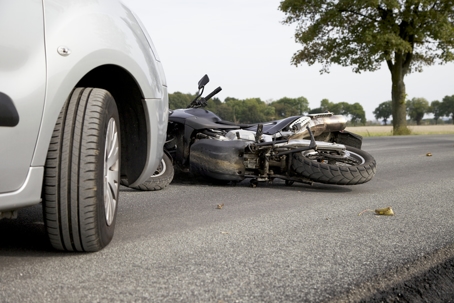When the temperatures rise and sunny days become the norm, motorcycles flood the streets, highways, and scenic routes. But with this seasonal boom in riders comes an unfortunate reality—motorcycle accidents see a noticeable uptick during warm weather. If you’re a rider, understanding why these accidents spike and, more importantly, what steps you can take to stay safe could make all the difference.
The Causes Behind Warm-Weather Motorcycle Accidents
Even the most skilled riders can face increased risks when warm weather draws more vehicles to the roads. Multiple factors contribute to the spike in motorcycle accidents during these months. Here are some of the most significant ones:
1. More Riders, More Risk
Warm weather encourages motorcyclists to hit the road. While this is a joy for enthusiasts, it also means more bikes are on the road. With increased volume comes a higher likelihood of accidents. Additionally, newbie riders, who might take their motorcycles out for the first time in months, represent a unique risk as they acclimate to road conditions and riding basics.
2. Distracted Drivers in Increased Traffic
Summer means vacation season for many, leading to increased traffic on highways and popular destinations. Unfortunately, distracted driving is more common during this time as drivers fiddle with GPS devices, text, or stare at sights instead of focusing on the road. Motorcycles are less visible than cars and trucks, making them especially vulnerable to inattentive drivers.
3. Road Conditions and Construction
Road maintenance and construction often ramp up during warmer months, with crews fixing winter damage or laying down new pavement. This can lead to loose gravel, uneven surfaces, sudden detours, and traffic congestion, all of which can surprise riders and increase accident risks.
4. Aggressive Driving and Alcohol-Related Issues
Warm nights are often accompanied by parties, bar nights, and celebrations where alcohol flows freely. Unfortunately, impaired drivers, paired with an increase in motorcycles, result in dangerous road conditions. Riders also might overestimate their abilities or engage in risky maneuvers, adding to this dangerous cocktail.
5. Tire and Mechanical Failures
Heat can take a toll on bikes, too. Prolonged exposure to higher temperatures can cause tires to expand and wear prematurely. Brake fluid and oil may also degrade faster in the heat, and any mechanical issue on a motorcycle is far riskier than in a car. Riders who don't regularly inspect and tune their bikes increase their accident potential.
How Riders Can Stay Safe During Warmer Weather
While the risks are very real, you’re not powerless. Taking proactive steps can significantly reduce your odds of being involved in a warm-weather motorcycle accident. Here’s what you can do:
1. Brush Up on Defensive Riding
Defensive riding is one of the most important habits for any motorcyclist. What does this mean in practice? It’s a riding mindset where you anticipate potential risks at every moment. For instance:
- Stay visible: Use your headlights even during the day and wear bright or reflective clothing.
- Scan your surroundings: Always look ahead for merging vehicles, distracted drivers, or road hazards.
- Maintain a safe distance: Give yourself enough stopping space, especially when following larger vehicles.
By actively assessing and adapting to road conditions, you can stay ahead of situations that could lead to an accident.
2. Wear the Right Gear
Your gear is your first line of defense in protecting yourself. While warm weather might tempt you to wear shorts or skip a jacket, this leaves you dangerously exposed in case of a crash. Instead:
- Invest in ventilated gear: Lightweight mesh jackets with armor and gloves designed for summer riding can keep you cool while protecting your body.
- Wear a DOT-certified helmet: Helmets have been proven to significantly reduce the risk of fatal head injuries.
- Don’t skip boots: Ankle injuries are common in motorcycle crashes, so opt for over-the-ankle boots with durable construction.
3. Keep Your Motorcycle in Top Shape
Taking a long summer ride on a poorly maintained bike is an accident waiting to happen. Before hitting the road:
- Check your tires: Look for cracks, wear, or uneven pressure. Use a tire gauge to ensure they’re inflated properly.
- Inspect brakes and lights: Stop-and-go summer traffic demands responsive brakes and visible lighting.
- Top off fluids: Overheating is common in heat, so ensure your engine oil and coolant levels are where they should be.
A few preventative checks can help you avoid potentially life-threatening mechanical failures.
4. Stay Educated on Your Legal Rights
Even if you take every precaution, accidents can still happen. That’s why it’s vital to understand your legal rights as a motorcyclist. If someone else's negligence causes you harm, you may have grounds to seek compensation for medical bills, lost earnings, or even emotional distress.
After an accident:
- Document everything: Take photos of the scene, note any road hazards, and get the other driver's insurance information.
- Speak to witnesses: Collect contact details of anyone who saw the accident.
- Avoid speaking to the other party’s insurer directly: They may try to minimize your claim.
- Consult an attorney: A personal injury lawyer specializing in motorcycle cases can guide you through the legal process and maximize your compensation.
Knowing your rights and acting swiftly can reduce the stress of navigating the aftermath of an accident.
California Motorcycle Accident Lawyers
Given the complexities and inherent risks of motorcycle riding, aligning with a knowledgeable law firm experienced in personal injury cases can greatly resolve the challenges faced during post-accident recovery. Residents and riders in California can reach out to Carpenter & Zuckerman to explore their legal options, receive personalized support, and ensure informed decisions for a safer riding experience moving forward. Contact us today at (888) 484-2033 to get started.

